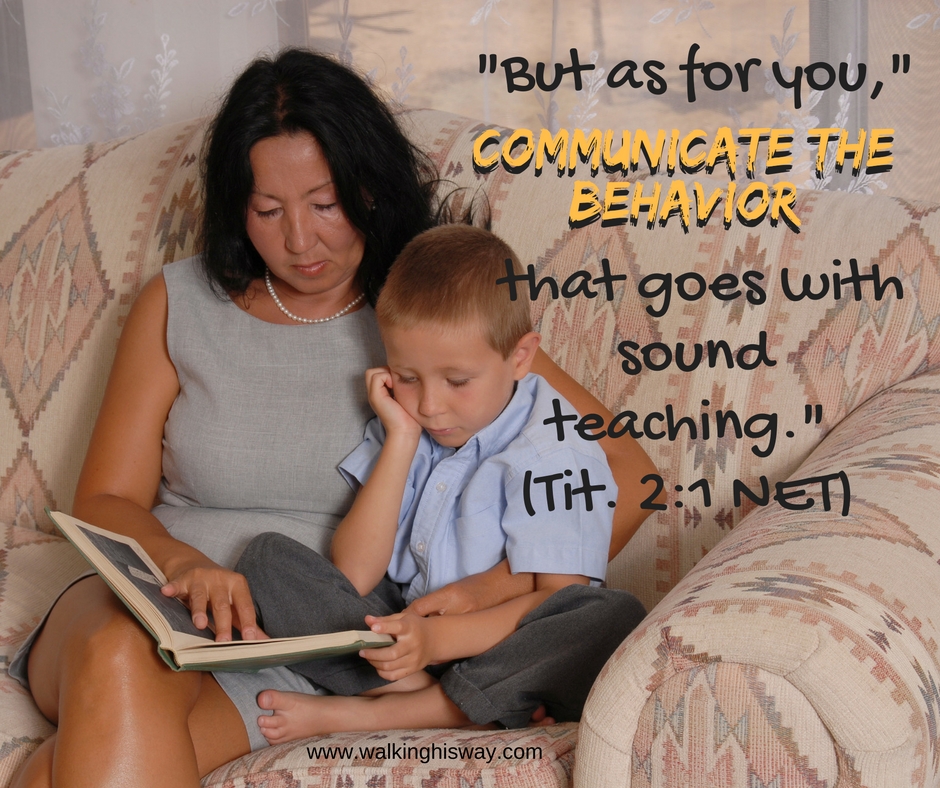 Titus 2:1 “But as for you, communicate~~ the behavior that goes with sound teaching.”
Titus 2:1 “But as for you, communicate~~ the behavior that goes with sound teaching.”
How can we change a society or nation? Genuine change can never be imposed or forced on people—legalistic systems never change the heart.
Paul sought not to change his society’s system but to change believers from within. Only then could behavioral transformation occur.
False teachers “profess to know God, but in works they deny Him, being abominable [‘abhorrent, detestable’], disobedient [lit. ‘unwilling to be persuaded’], and disqualified [or ‘unapproved, worthless’] for every good work” (Titus 1:16). They did everything possible to distract people from knowing and obeying the word of God, convincing them to submit to their revelations and visions.
The first word in Titus 2:1, “but,” introduces a contrast from the theme of the previous verses (1:10–16). “As for you” (i.e., the teachers faithful to God’s Word) directs the change from addressing the false teachers to addressing the true leadership of the church. True teachers are commanded to “continually be communicating [‘intellectually and with reason’] the behavior that goes with sound teaching.”
What we think, believe, and value directly affects our emotional motivation toward consistent behavior. The foundation of biblical understanding is vital for godliness. Paul did not write about the “customs” he taught, but he insisted on them (1 Cor 11:16; 2 Thes 2:15).
True teachers are to “teach the older men to be temperate, worthy of respect, self-controlled and sound in faith, in love and in endurance” (Titus 2:2), not by saying it, but by living it: “encourage the young men to be self-controlled. In everything set them an example by doing what is good. In your teaching show integrity, seriousness and soundness of speech that cannot be condemned” (2:6–8).
They are to “remind the people to…be ready to do whatever is good, to slander no one, to be peaceable and considerate and to show true humility toward all men” (3:1–2). None of this is legalistic. None of this curriculum is mere intellectual knowledge; rather, it is taught through a personal display of godly, practical living. These are the teachers we need. Are you becoming one?
“Father, with all my heart I want to live a life that reflects all Your commands and instructions so I can teach the principles of life to others. Show me the way.”
